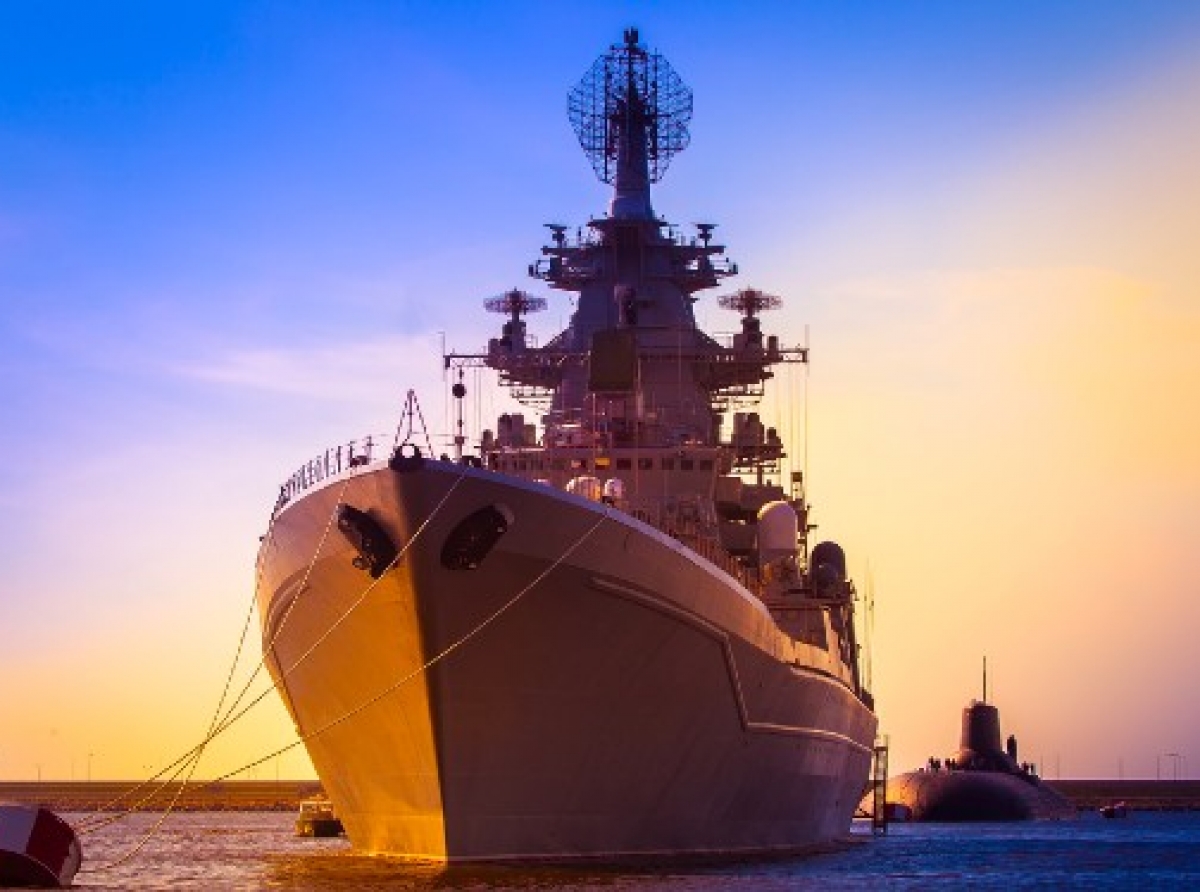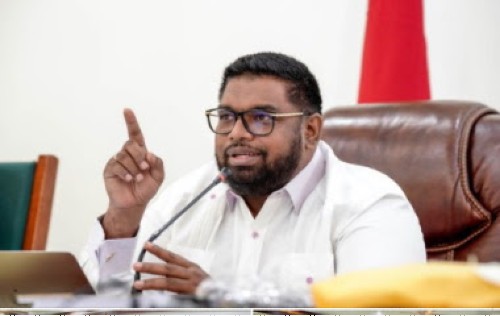Guyana's President Calls For Mature and Open Discussions on US Military Actions in the Region

GEORGETOWN, Guyana – President Irfaan Ali Tuesday urged Caribbean Community (CARICOM) leaders to approach the growing presence of United States naval assets in the Caribbean with “eyes wide open,” emphasizing the need for mature and open discussions on security matters affecting the region.
 President Irfaan AliThe state-owned Department of Public Information (DPI), quoted Ali as saying that while some Caribbean leaders may view the US military buildup positively, Guyana recognizes that the situation requires careful examination
President Irfaan AliThe state-owned Department of Public Information (DPI), quoted Ali as saying that while some Caribbean leaders may view the US military buildup positively, Guyana recognizes that the situation requires careful examination
“The zone of peace is not only about threats to borders. It’s also about threats that we are now seeing,” he said, noting concerns such as drug trafficking, illegal migration, and the use of international waterways for transhipment.
The United States has ordered an amphibious squadron to the southern Caribbean as part of President Donald Trump’s effort to address threats from Latin American drug cartels. A nuclear-powered attack submarine, additional P8 Poseidon reconnaissance aircraft, several destroyers and a guided-missile cruiser have also being allocated to US Southern Command as part of the mission.
Venezuela has since responded to what it termed the threat posed by the United States and has itself marshalled its troops along its borders.
Late last month, President Donald Trump ordered the US military to strike a boat in the Caribbean Sea, off Venezuela, killing 11, allegedly carrying drugs and earlier this month, he told reporters from the Oval Office that he had strong evidence that the latest boat in which three people were killed, was also carrying drugs.
The Trinidad and Tobago government has come out publicly in support of the United States sending naval and military troops to waters near Venezuela as part of Washington’s crackdown on narco- trafficking.
Prime Minister Kamla Persad Bissessar in her address to the UNGA last weekend, said while there have been objections to the US military action against drug cartels from some countries, Port of Spain wanted to remind the international community that, “unless forceful and aggressive actions are taken, these evil drug cartels will continue their societal destruction because they believe affected nations will always unreservedly subscribe to morals and ethics which they themselves blatantly flout.
“That is why we willingly supported the international security alliance announced by US Secretary of State Marco Rubio, involving the US and several countries in South America to combat drug-trafficking in the hemisphere,” she told the UNGA, adding that the notion that the Caribbean is a zone of peace has become a false ideal.
“The reality is stark, no such peace exists today,” she added.
President Ali said that Guyana has consistently promoted the region as a zone of peace and has responded to threats with diplomacy and truth rather than hostility.
“Every single day, the Venezuelan government attacks me personally, attacks this country. They say the worst things about us. But we have never responded in a hostile way. We responded with facts and truth,” he said, underscoring his country’s commitment to measured and principled diplomacy.
President Ali emphasized the importance of intelligence sharing and collaborative discussions among regional partners to understand the implications of military movements fully.
“What is needed is a meeting of minds, a meeting to share intelligence and to share information, so a fuller understanding of what is at stake here for all of us,” he said, adding that through open dialogue, transparency, and regional cooperation, Caribbean countries can collectively safeguard peace and stability while addressing emerging security challenges.


